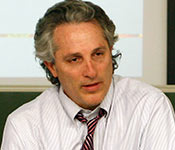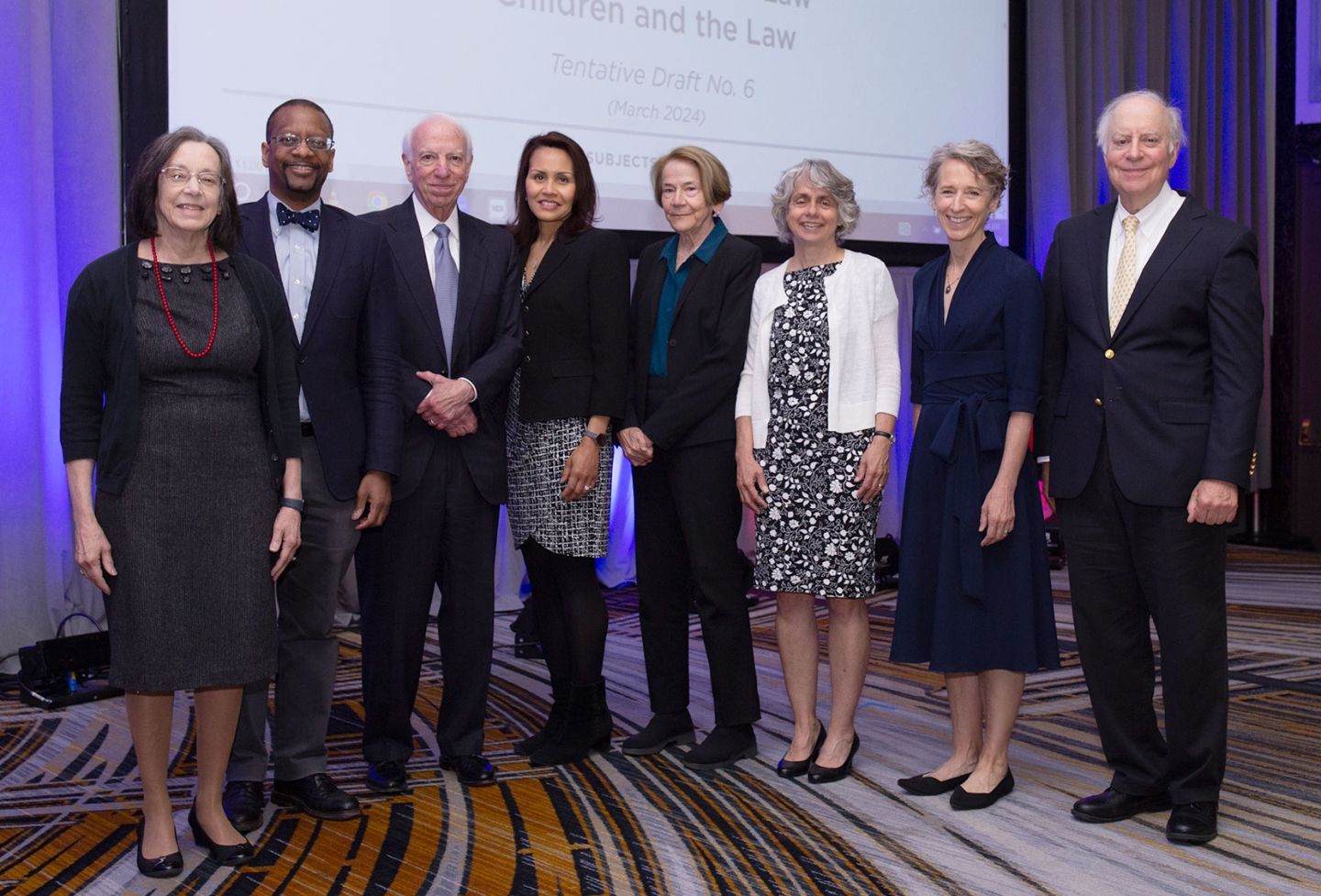Don't Compromise Ethics in Human Experiments, Bioethics Expert Says
Medical research on humans that could benefit future generations seems like a noble cause and those participating in it could be seen as heroes. Still, law students should examine the underlying ethical issues of such research, according to Alan Milstein, a nationally known bioethics litigator.

"A successful result will never make an unethical experiment ethical," Milstein told a bioethics class April 9 during a talk sponsored by the Sadie Lewis Webb Program in Law and Biomedicine.
Detailing unethical experiments of famous researchers whose work throughout the 20th century earned considerable international acclaim, Milstein noted that those efforts also left behind hundreds, and in some cases thousands, of innocent victims.
The most infamous research was conducted by some of the world's leading medical researchers as part of the Nazi experiments during the Holocaust. Milstein explained that the trial of those same researchers as war criminals resulted in the Nuremberg Code, a set of internationally accepted rules for conducting human medical experiments.
Despite the Nuremberg Code and several other international agreements to which the United States is a signatory, research malpractice is found in numerous university and corporate settings every year, Milstein said. In many of his cases Milstein said he has had to confront what he called "the arrogance of principle investigators" - medical researchers who believed that their work was so important that it justified compromising the human subject.
One such case that Milstein litigated, settled in 2000, involved a young man from Pennsylvania who died as a result of participating in a gene therapy experiment. According to Milstein, it wasn't until after his death that the young man's parents found out that earlier animal experiments using the same techniques had also resulted in deaths, that the principal investigator in the research held a patent on the drug that was being tried as well as a 33 percent stake in the company producing the drug, and that the University of Pennsylvania - where the experiments took place - also held a stake in the company.
"We need these regulations because researchers have abused human subjects for a thousand years - not necessarily with bad motives but to try to obtain scientific and medical knowledge for the greater good," Milstein said. "Yet it's the researcher who's got the ethical obligation to make sure the risks don't outweigh the benefits."
Researchers must adhere to three principles in order to ethically conduct research on human subjects, according to Milstein. "First, the researcher/physician must believe that the human subject in the experiment has at least the same chance of doing as well as a patient in standard therapy."
Second, human subjects must be selected equitably. "You've got to avoid vulnerable populations, such as the very sick and the poor. Using money as an inducement, in my view, is unethical."
And finally, "You still have to have informed consent. You have to have a document and a process where you explain the procedure, the risks, and the benefits."
Milstein stressed that a signed informed consent document doesn't relieve researchers of their ethical obligations.
"The informed consent document doesn't evidence either that the participant is informed or that he or she consents," he said. "There's an ethical duty on the researcher to make sure that the subject understands the process and risks and is not coerced into giving consent."
Even then, an experiment's design and implementation dictate whether it is ethical, Milstein said.
"It doesn't make any difference whether the human subject has agreed to participate in an unethical experiment."
Founded in 1819, the University of Virginia School of Law is the second-oldest continuously operating law school in the nation. Consistently ranked among the top law schools, Virginia is a world-renowned training ground for distinguished lawyers and public servants, instilling in them a commitment to leadership, integrity and community service.


